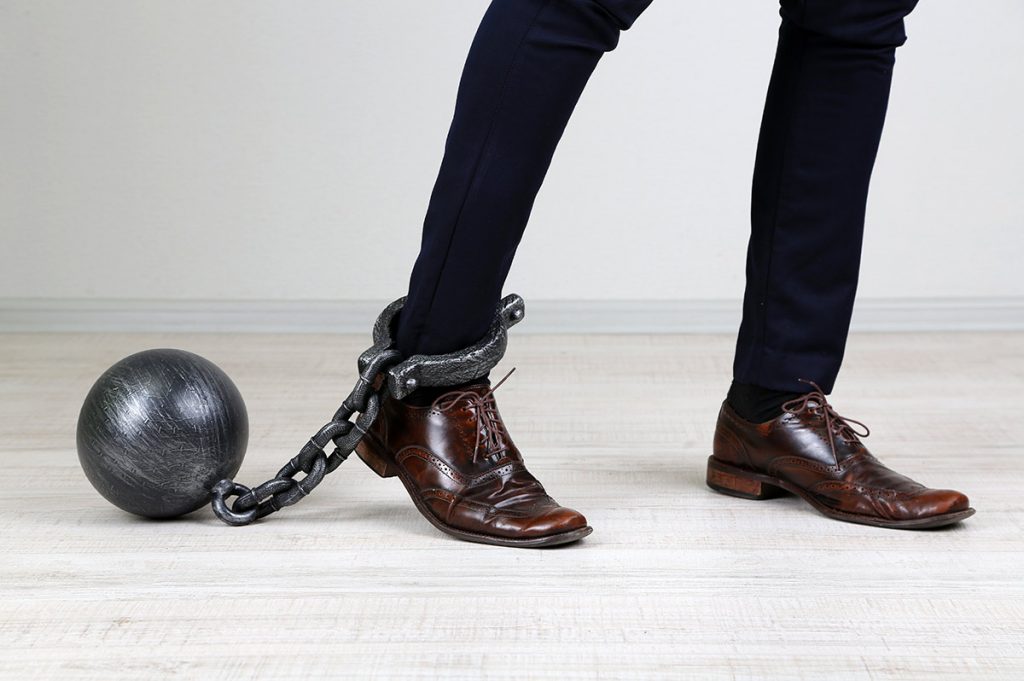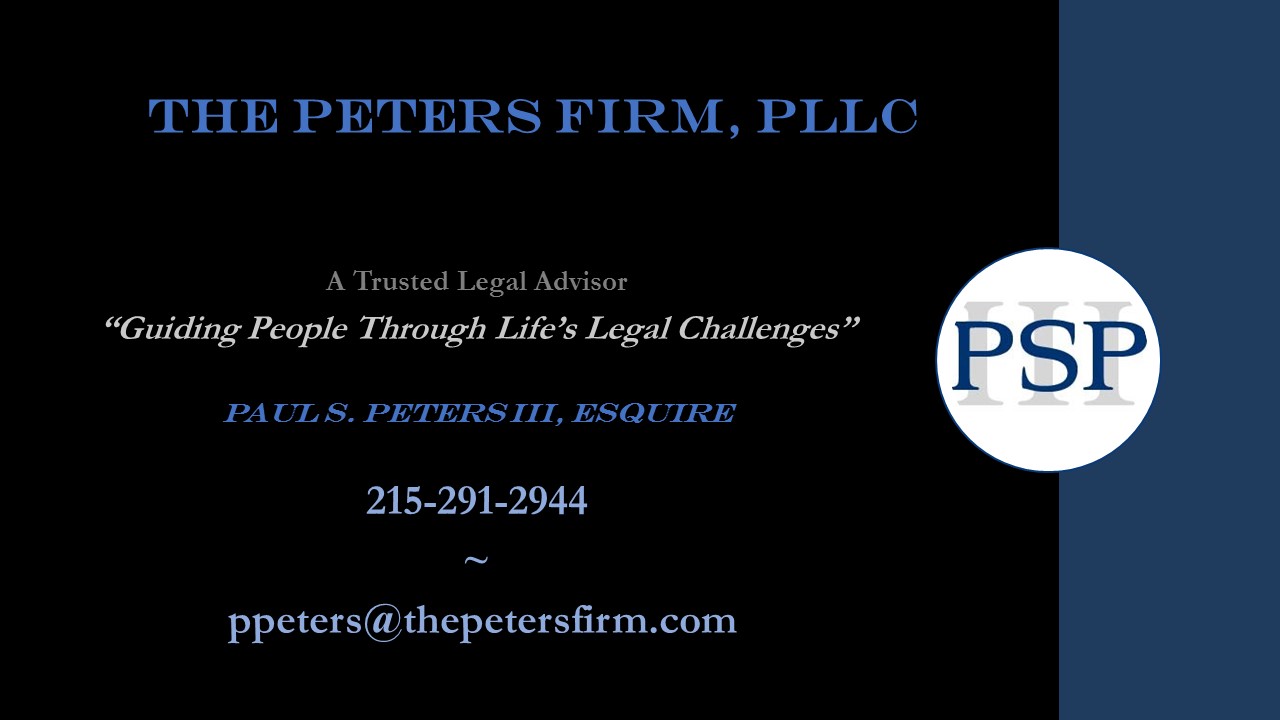
What are Crimes of Moral Turpitude
for Professional Licensing Decisions in Pennsylvania?
Two legal concepts relating to Professional Licensing in Pennsylvania that create interpretation challenges are:
- “Good Moral Character.”
- “Crimes of Moral Turpitude.”
While some Pennsylvania Professional Licensing laws specifically address criminal convictions and provide a list of disqualifying or disclosable crimes, many licensing laws do not. Those that do not merely state an applicant must be a person of “Good Moral Character” or a license will not be issued or revoked when the individual has a conviction for a “Crime of Moral Turpitude.” So: What are Crimes of Moral Turpitude and Professional Licensing in Pennsylvania?
The issue presented is that Pennsylvania’s licensing laws fail to define “Good Moral Character” or “Crime of Moral Turpitude.” Therefore, when licensing boards deny or revoke Professional Licenses in Pennsylvania, one must look to how Pennsylvania Courts and other laws have defined the concepts or generally accepted legal definitions of the concepts.
The lack of a uniform and global test in Pennsylvania for determining “Good Moral Character” or “Crime of Moral Turpitude,” causes concerns over the arbitrary and discriminatory application of these broad concepts by Pennsylvania Licensing boards. There are legitimate concerns of discrimination toward African Americans applying for or holding licenses in professions such as Barbers, Cosmetologists, Hair Braiders, Nursing, and Home Health Care.
What are “Crimes of Moral Turpitude” for Professional Licensing in Pennsylvania?
Dictionary Definition
In the legal profession, the primary source for legal definitions is Black’s Law Dictionary. Black’s Law Dictionary, in its 7th Edition, defines “Good Moral Character” as:
“A pattern of behavior that is consistent with the community’s current ethical standards, and that shows an absence of deceit or morally reprehensible conduct.”
Black’s Law Dictionary 7th Edition defines “Crimes of Moral Turpitude” as:
“Conduct that is contrary to justice, honesty, or morality, such as fraud or breach of trust.”
While these definitions provide a starting point, they fail to define the concepts definitively.
Pennsylvania Court Definitions and Interpretations
Given the similarities between the definitions, Pennsylvania Courts have concluded that the two concepts, “Moral Character” and “Moral Turpitude” are interchangeable and analogous by stating, “From these definitions, it is apparent the two phrases . . . are often used together.” Gombach v. Department of State, Bureau of Commissions, Elections & Legislatures, 692 A.2d 1127, 1130 (Pa. Cmwlth. 1997).
Other Pennsylvania Court decisions have further defined “Moral Turpitude” as:
“shameful wickedness – so extreme a departure from ordinary standards of honest, good morals, justice, or ethics as to be shocking to the moral sense of the community. It has also been defined as an act of baseness, vileness, or depravity in the private and social duties which one person owes to another, or to society in general, contrary to the accepted and customary rule of right and duty between people.” Dunagan v. Bureau of Professional and Occupational Affairs, State Board of Nursing, 2019 WL 1556879, 3 (Pa. Cmwlth. 2019).
The definition in Dunagan sheds more light on crimes included in the concept of “Moral Turpitude.” Crimes that are felonies such as Murder, Arson, Kidnapping, Burglary, Aggravated Assault, Rape, Robbery, Possession with Intent to Deliver Controlled Substances, and most other Sexually based or Child Victim crimes, fit that definition of “Moral Turpitude.” Pennsylvania Licensing Boards will use those convictions to conclude if an applicant or license holder does not possess “Good Moral Character.” Pennsylvania Courts have found that crimes such as Mail Fraud, Theft by Deception, Distribution of Cocaine, and other acts of Fraud fall into the category of “Moral Turpitude.” Dunagan at 3. This definition can include some Misdemeanors in Pennsylvania, such as DUI and Simple Assault; however, the courts have held that Summary Offense never constitute “Moral Turpitude.”
When taking a licensing action based on the concepts of “Good Moral Character” or “Moral Turpitude,” the licensing boards can only base decisions on the elements of a crime, not the underlying facts or details of the individual case or conviction. Dunagan at 3. For example, the Board must look at the Pennsylvania definition of Kidnapping, not the facts of the specific Kidnapping.
Other Pennsylvania Statute Definitions and Interpretations
A licensing area in Pennsylvania that provides specifics regarding “Moral Turpitude” is Educational Licensing. Pennsylvania Statute 22 Pa. Code §237.9 defines “Moral Turpitude” in the same manner as Black’s Law and the Pennsylvania Courts. Though it adds to the definition, “Intentional, Knowing, or Reckless conduct causing bodily injury to another or intentional, knowing, or reckless conduct which, by physical menace, puts another in fear of imminent serious bodily injury.” 22 Pa. Code §237.9(a)(3).
Section 237.9 refers to specific crimes as being those of “Moral Turpitude” by referencing 24 P.S. §1-111(e)(1) of the Public School Code. The Public-School Code lists and addresses specific crimes such as Murder, Kidnapping, Stalking, Aggravated Assault, and the majority of Sexually Based Crimes and Crimes Against Children. These crimes automatically disqualify someone from being employed in the field of education.
Many licensing boards and Pennsylvania Courts refer to the Education Boards’ definition of “Moral Turpitude” to make determinations regarding the denial or revocation of a Professional License.
Pennsylvania Criminal History Record Information Act (CHIRA) and Professional Licensing
CHIRA establishes an orderly collection and dissemination of criminal history information; and sets forth procedures for reporting arrest, fingerprinting, final disposition, and expungement records.
CHIRA addresses the use of criminal records by licensing boards in Section 4.4 of the Act by stating, “18 Pa. C.S.A. §9124 directs state licensing agencies to consider convictions of an applicant of crimes, but the convictions alone shall not preclude the issuance of the license, certificate, registration, or permit.” Instances, where criminal convictions can result in a license application denial, are felony convictions and convictions for a misdemeanor relating to the trade, occupation, or profession for which the license sought. However, a license should not get denied based on arrests, summary convictions, expungements, pardons, and crimes having no relation to the license sought.
Hopefully the above answers the question: What are Crimes of Moral Turpitude and Professional Licensing in Pennsylvania?
How We Can Help
When it comes to Professional Licensing in Pennsylvania, denials or revocations of a Professional License based on “Good Moral Character” or “Moral Turpitude” are not explicit, and more importantly, not done by way of uniformity. The decisions by the Boards vary by type of license, the specific Board’s interpretation, and under a case by case basis wrought with suspicion of discrimination, favoritism, or other arbitrary reasons.
If you are applying for or facing a suspension of your Professional License in Pennsylvania, you must immediately obtain an experienced, trusted, and aggressive Criminal and License Defense Lawyer. You will need representation for both the underlying criminal charges and defense of your Professional License before the Pennsylvania Board for your profession. Paul S. Peters III, Esq. is the trusted, experienced, and aggressive legal partner needed to defend your rights and Professional License in Criminal Court and before the Pennsylvania Board for your profession.
Paul S. Peters III, Esq. handles matters in Pennsylvania arising in: Montgomery, Philadelphia, Bucks, Delaware, Chester, Lehigh, Lancaster, Northampton, and Berks, County, just to name a few.
Hopefully you do not have to ask the question: Is my Conviction a Crime of Moral Turpitude? If you do, then Do Not waste one minute, contact the Aggressive, Experienced, Trusted, and Compassionate Pennsylvania Criminal and Professional License Defense Lawyer, Paul S. Peters III, Esq.
YOU BETTER CALL PAUL!
215-291-2944
ppeters@thepetersfirm.com
TRUSTED, AGRESSIVE, ZEALOUS, AND EXPERIENCED PENNSYLVANIA PROFESSIONAL AND OCCUPATIONAL LICENSE DEFENSE ATTORNEY
If your Professional license is at risk in any of the following Pennsylvania Counties: Montgomery, Philadelphia, Bucks, Delaware, Chester, Lehigh, Lancaster, Northampton, Berks, Adams, Cumberland, Dauphin, Franklin, Fulton, Huntington, Juniata, Lebanon, Mifflin, Perry, Snyder, York Bradford, Cameron, Centre, Clinton, Lycoming, Montour, Northumberland, Potter, Sullivan, Tioga, Union, Carbon, Columbia, Lackawanna, Luzerne, Monroe, Pike, Schuylkill, Susquehanna, Wayne, and Wyoming County
It is important you contact the trusted, aggressive, and experienced Pennsylvania Professional and Occupational License Defense Attorney:
Paul S. Peters III, Esquire at:
215-291-2944
ppeters@thepetersfirm.com



